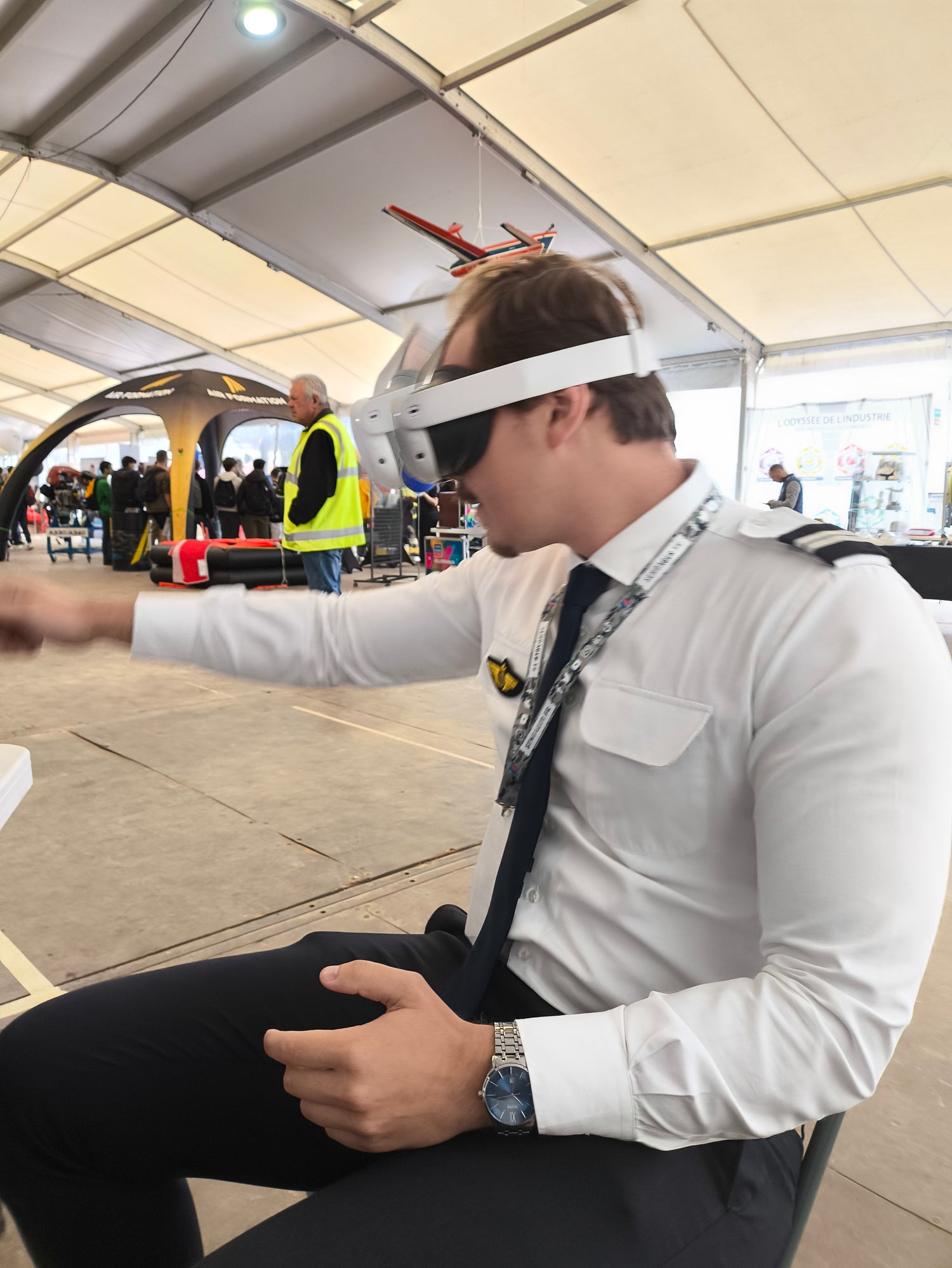
3X faster
Optimizing learning with Cockpit Flow VR, according to aviation instructors who tested Cockpit Flow VR, memorizing procedures becomes three times faster. This efficiency is mainly due to the integration of muscle memory into the learning process.
Benefits :
- Muscle Memory : Using immersive simulations, Cockpit Flow VR allows users to practice procedures repetitively, strengthening the neural connections associated with these movements.
- Active Learning : Unlike traditional passive learning methods, virtual reality
actively engages the user, making it easier to retain information.
By combining virtual reality technology with proven learning principles, Cockpit Flow VR transforms the way pilots and aviation professionals memorize and practice procedures. This innovative method offers a modern and effective approach to optimize the learning and mastery of essential motor skills.
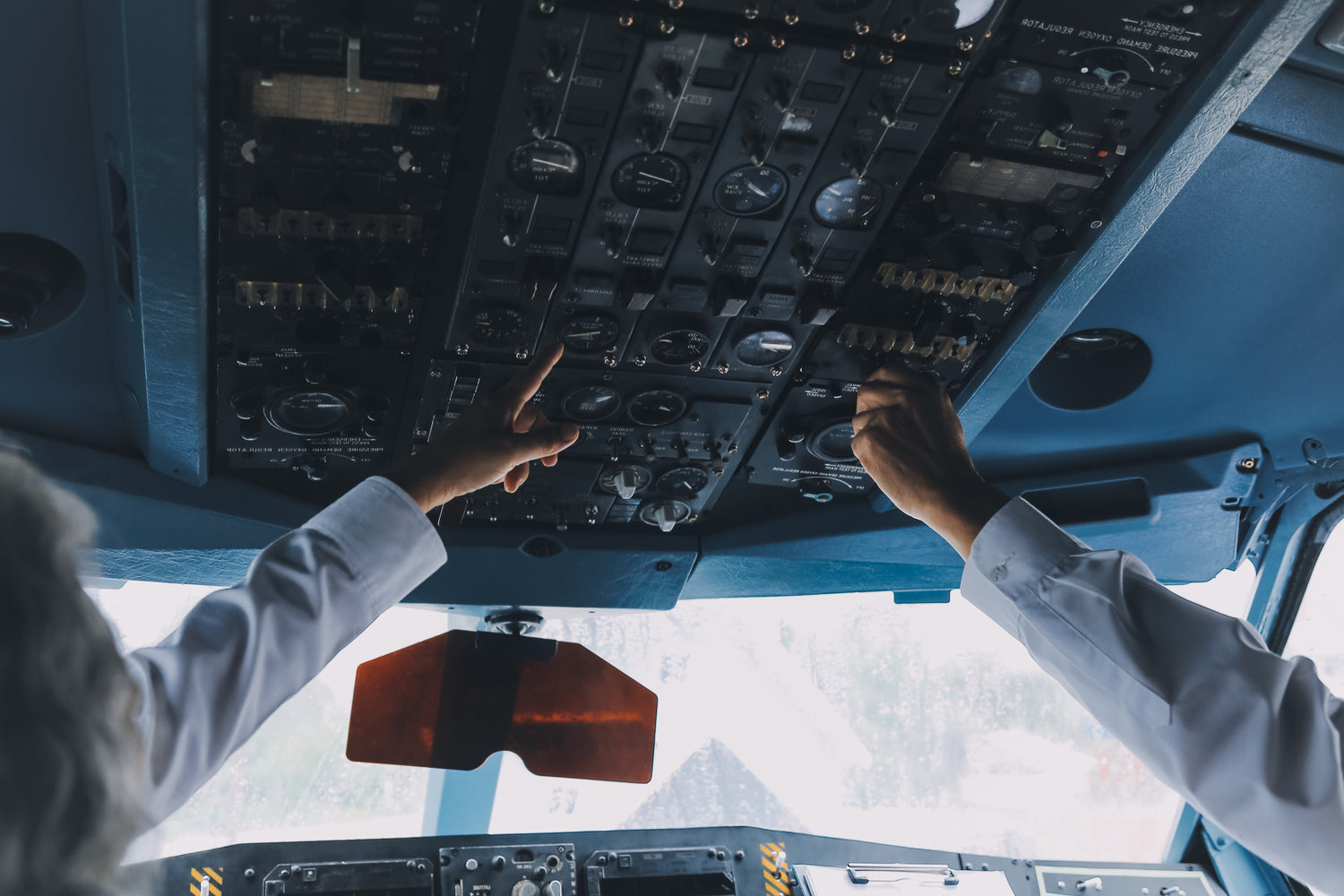
Cockpit Flows VR
Our Solution
A digital VR program embedded in a standalone virtual reality headset.
Innovative and effective approach to learning by memorizing flows.
Exercise patterns or flight plans in an immersive and interactive way to provide practical, precise and engaging training, allowing you to become familiar with the environment of an aircraft cockpit.
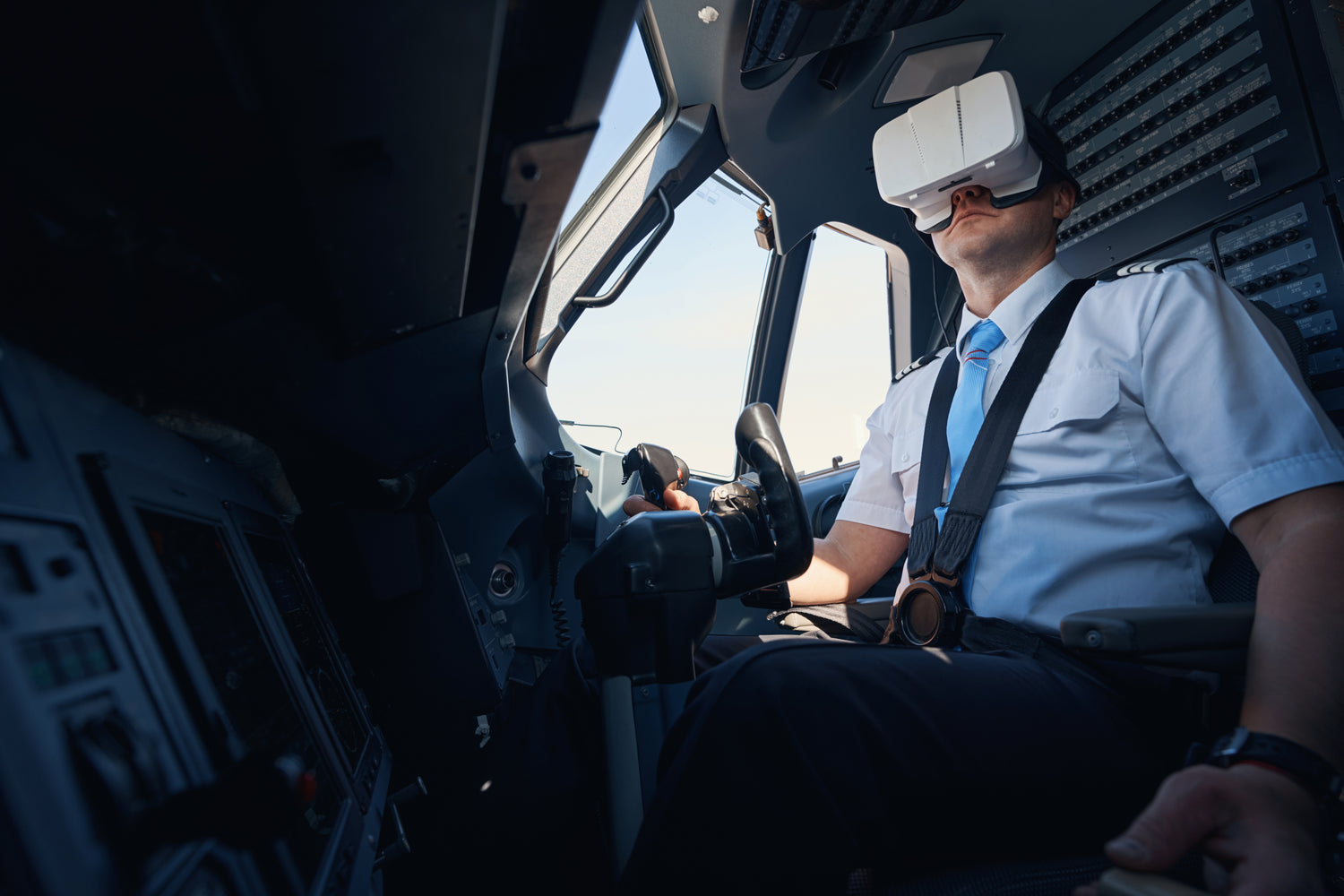
Cockpit Flows VR
VR Training
Implement virtual reality in your training. Immersion in a virtual and realistic environment allows you to experience and rehearse complex scenarios in complete safety. VR transforms each session into a captivating experience. Thanks to VR, student pilots refine their skills in a dynamic setting, promoting a deep and lasting understanding of learning.
Explore this new 100% immersive educational tool now and transform the way you learn to fly!
-

Muscle Memory
followingVirtual reality provides an immersive environment where learners can repeatedly practice specific tasks without needing access to expensive or risky equipment. This virtual training reinforces muscle memory in several ways.
First, VR allows users to immerse themselves in simulated environments that are close to real-world situations. For example, in a study on vehicle painter training, VR was used to recreate paint shops in which learners could practice handling tools and applying virtual paint layers. These virtual environments faithfully replicate the challenges encountered in the real world, allowing learners to develop their skills without the physical or financial constraints of real materials MDPI

Flow Mastery
Flows or sequences of actions are crucial to the safety and efficiency of air operations. Our educational tool guides you step by step through these sequences, allowing you to memorize them and execute them with precision, like a true professional.
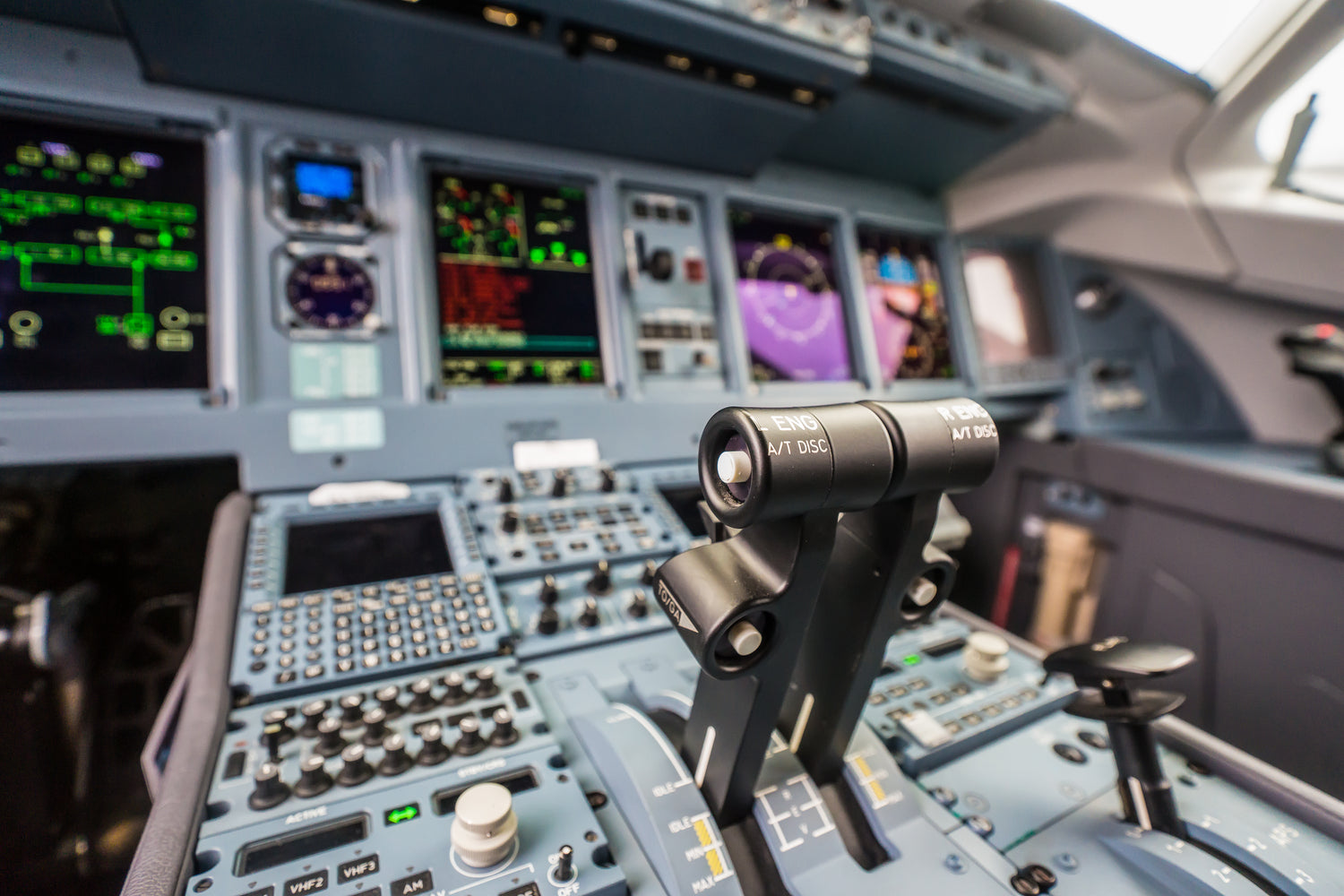
Procedures Training
Prepare for flights like a pilot with hands-on exercises on pre-flight and post-flight procedures. Our platform offers interactive scenarios where you can practice, correct your mistakes in real time, all to improve your skills.
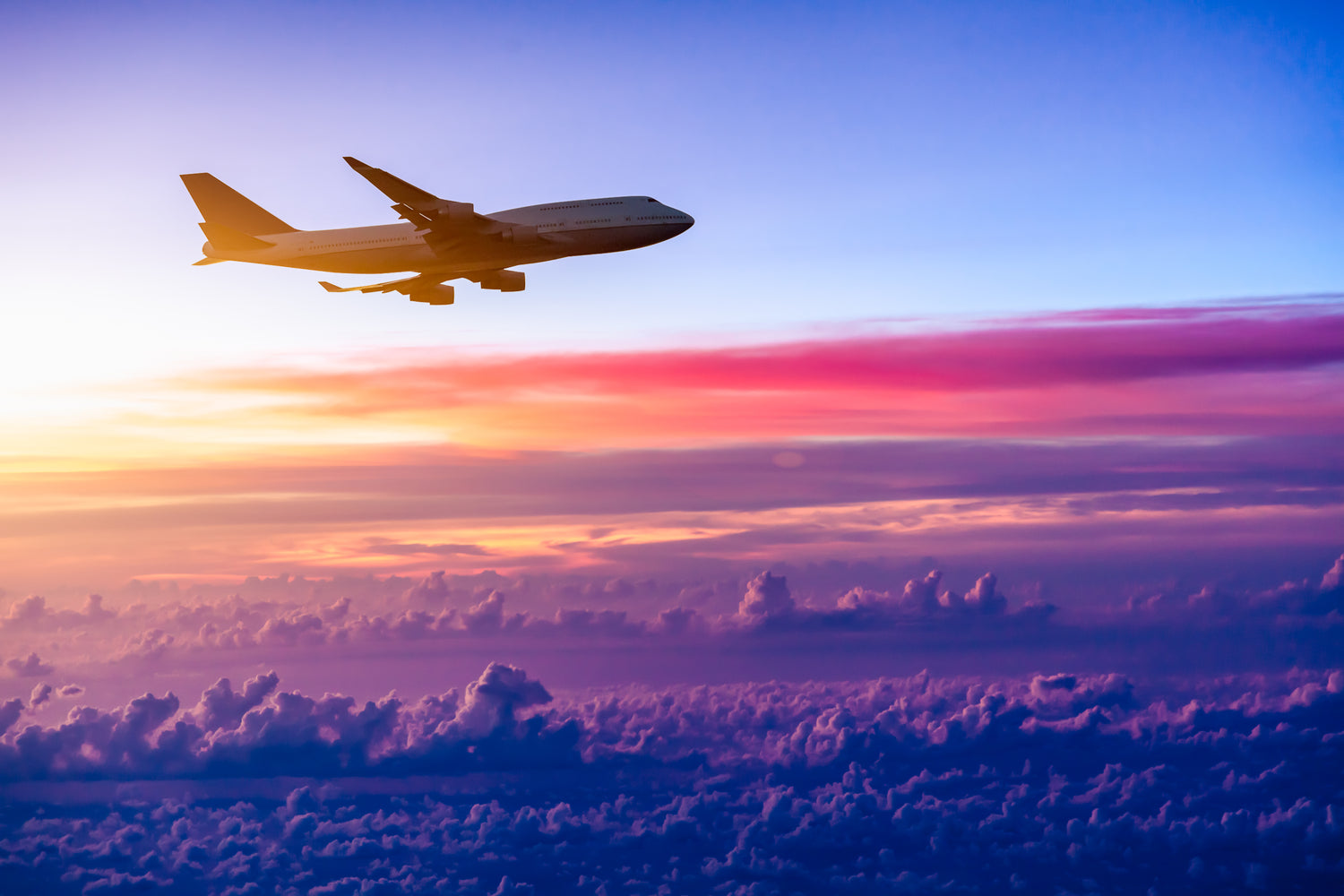
Why choose our solution?
This immersive learning method is ideal for aviation students and professional pilots looking to hone their skills and practice procedures before certification. By combining cutting-edge technology and advanced pedagogy,
We make learning flight procedures more accessible, engaging, and effective.
With Cockpit Flows VR learning becomes:
-

Easy
Easy to use, easily interact with the virtual environment through fluid and natural actions, without the need for advanced technical skills.
-

Playful
Interactive VR solution, designed to entertain users while providing an enjoyable experience through interactive learning
-

Fast
A VR app in META's 100% standalone Quest 3 headset, allowing freedom of movement. The headset can be used anywhere.
-

VR Immersion
Immerse yourself in an ultra-realistic virtual cockpit where every detail has been carefully recreated to give you an authentic learning experience. Explore freely
the different instruments and understand their function intuitively.
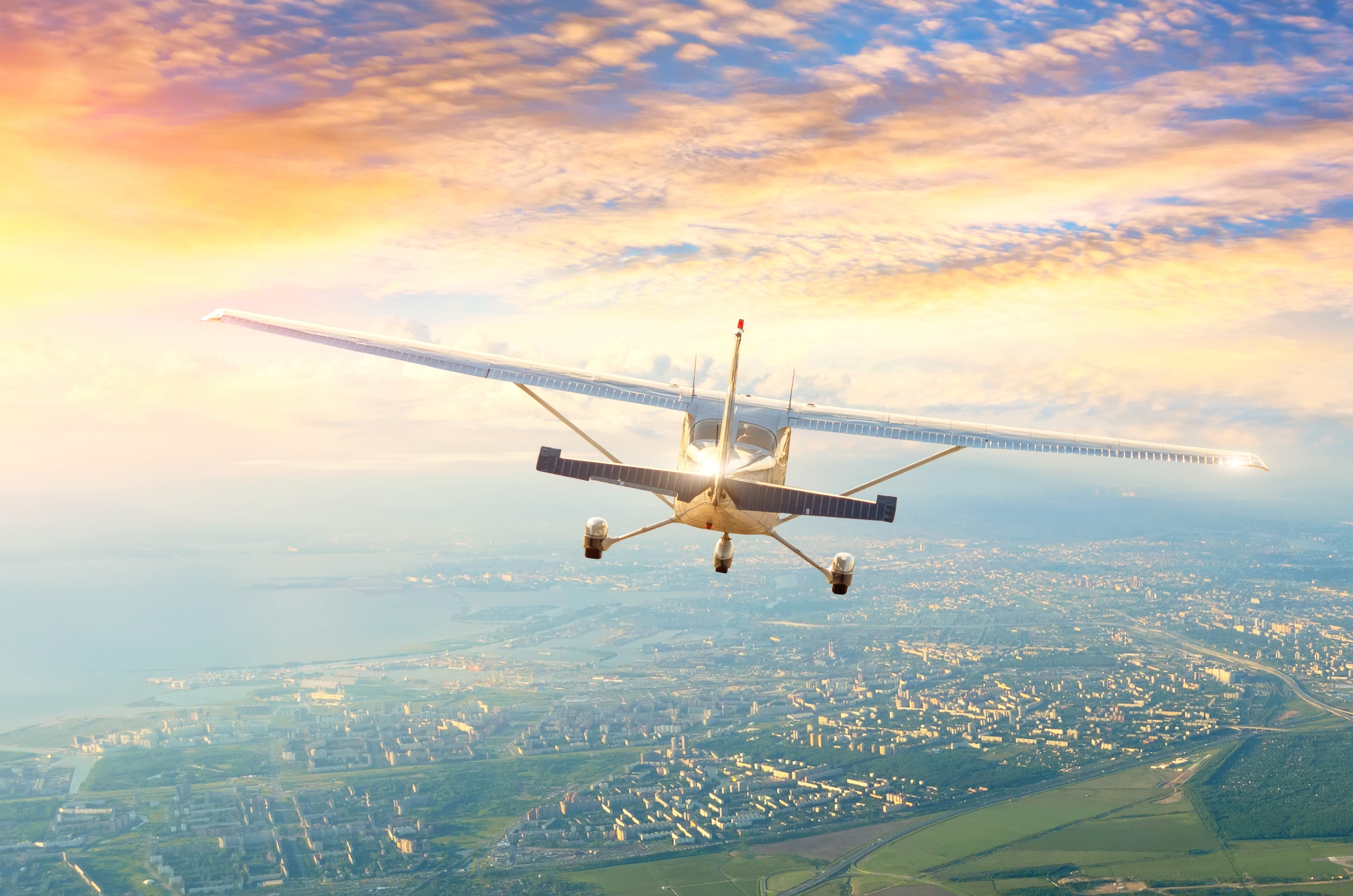
Professional training in VR
Professional training in virtual reality opens the doors to revolutionary learning, where immersion becomes the key to mastery. By immersing learners in virtual and realistic environments, these trainings transcend the limits of imagination, allowing them to live and rehearse complex scenarios in complete safety. VR transforms each session into a captivating experience, where error is without consequence and experimentation is encouraged. Thanks to this technology, professionals can refine their skills in a dynamic and engaging setting, promoting a deep and lasting understanding of the required know-how.
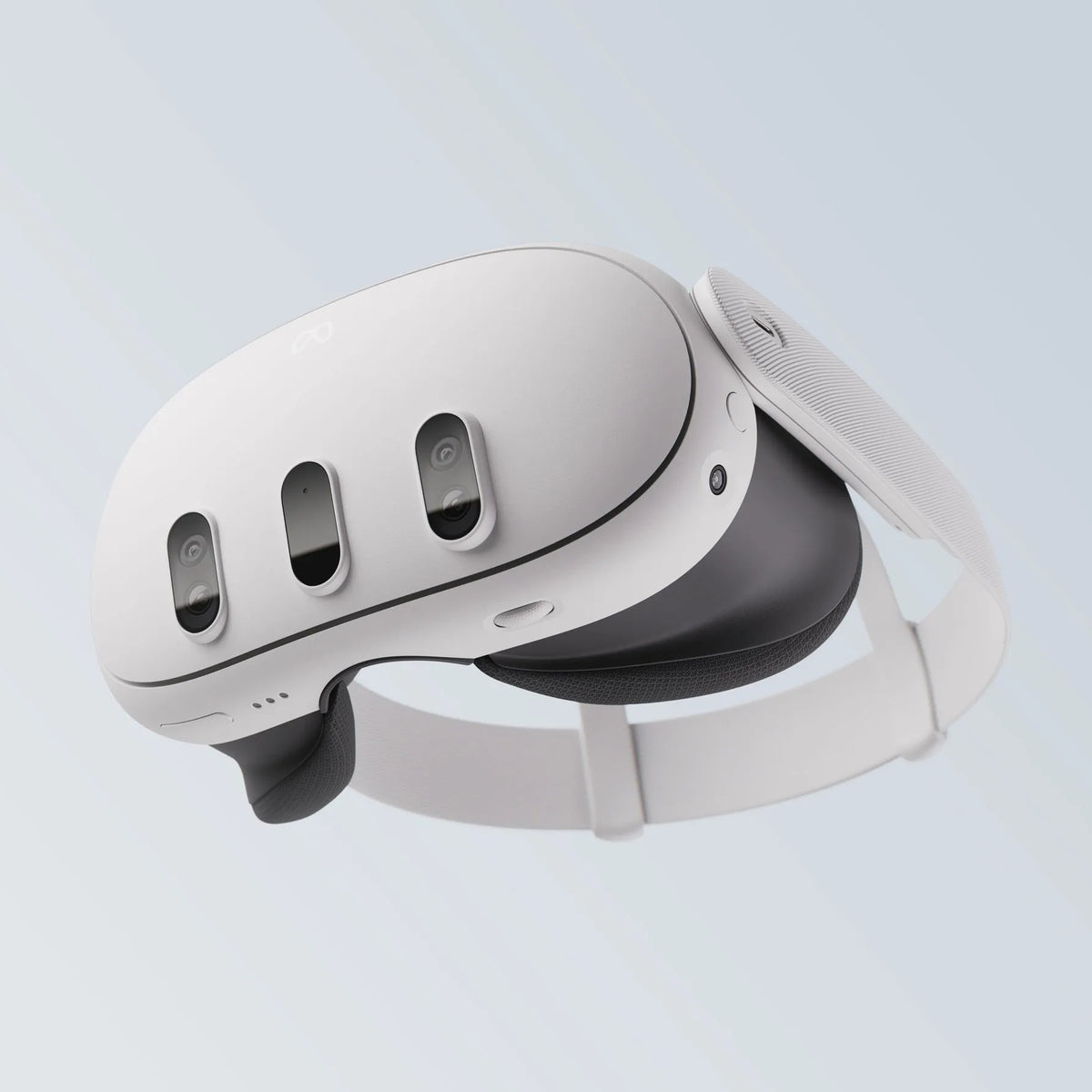
Order
- Create your account on http://cockpit-flows-vr.com/
- Get a 100% standalone Meta Quest 3 virtual reality headset
- Create an account on https://www.meta.com/fr/quest/
- Connect your headset to your Cockpit Flows VR account
ps: each step only needs to be done once!
Take advantage of our special offers: flight schools and flying clubs
Become a customerour references
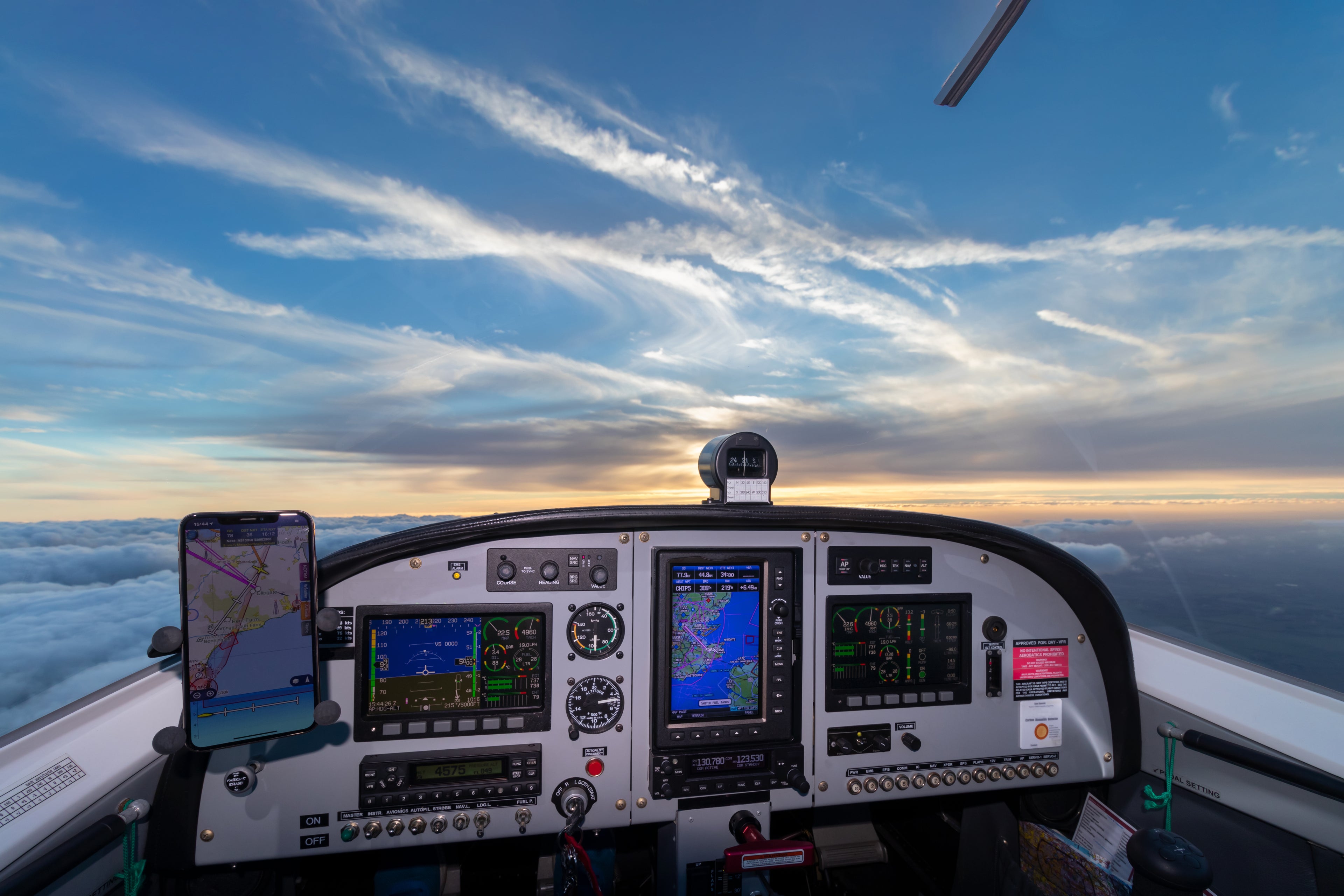
Memorization in virtual reality
Virtual reality (VR) improves gesture recall for airline pilots by creating an immersive environment where users can practice repetitive procedures interactively. Studies show that VR training strengthens procedural memory, which is essential for the automatic execution of gestures under stress. VR simulates complex and realistic scenarios, allowing for unlimited and risk-free repetition, which optimizes learning through active practice and improves the retention of critical gestures. The immersive nature of VR engages multiple senses simultaneously, which stimulates memory encoding, a cognitive function crucial for long-term memory. Neuroscience research confirms that this multisensory immersion in VR is more effective for gesture recall than traditional training methods.
References
Smith, S.P., & Ericson, E. (2009)
“Using Immersive Virtual Environments for Training, Assessment, and Certification of Basic Pilot Skills.” ACM
Transactions on Multimedia Computing, Communications, and Applications, 5(2), 1-
23.
> This article examines how immersive virtual environments can
be used for training basic pilot skills,
showing that VR enhances skill acquisition by enabling the
repetition and interaction in realistic scenarios.
Lécuyer, A., Burkhardt, JM, & Labbé, C. (2013)
"From Real to Virtual Planes:
A Study of Flight Safety Training in Immersive Virtual Environments." IEEE Transactions on Visualization and Computer Graphics, 19(4), 645-653.
> This study explores the use of VR for safety training
air, demonstrating that pilots can better memorize and apply emergency procedures through immersive simulations.
Schoenfeld, A.M., & Smith, T.L. (2020)
"Enhancing Procedural Memory
Through Virtual Reality: Applications in Pilot Training." Journal of Applied Cognitive Psychology, 34(3), 511-522.
> This research shows that virtual reality improves memory
procedural training of pilots, making gestures and procedures more intuitive and automatic during stressful situations.
These articles show the effectiveness of VR in improving memorization and
gesture retention for airline pilots, supporting the idea that training
immersive is more effective than traditional methods.





